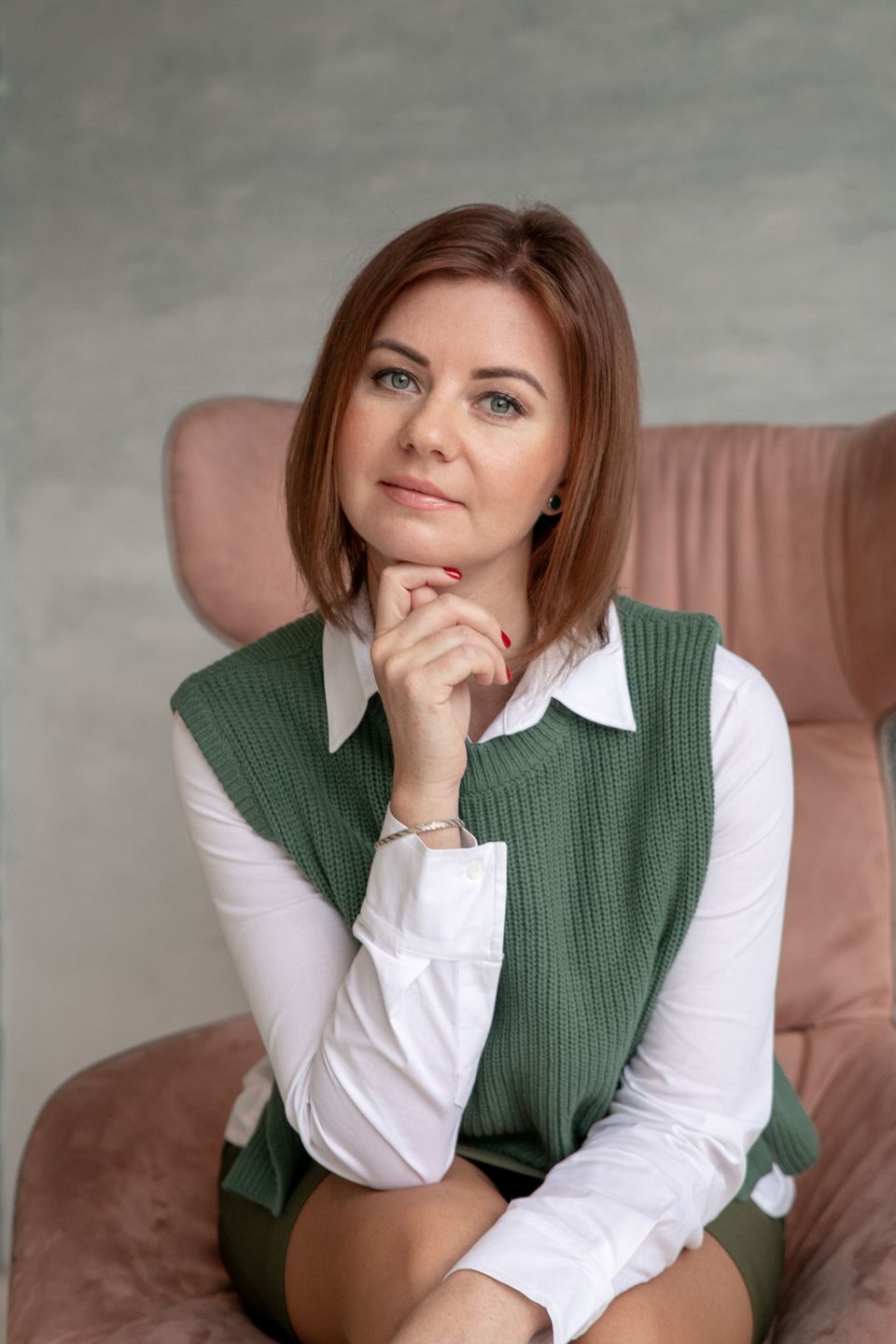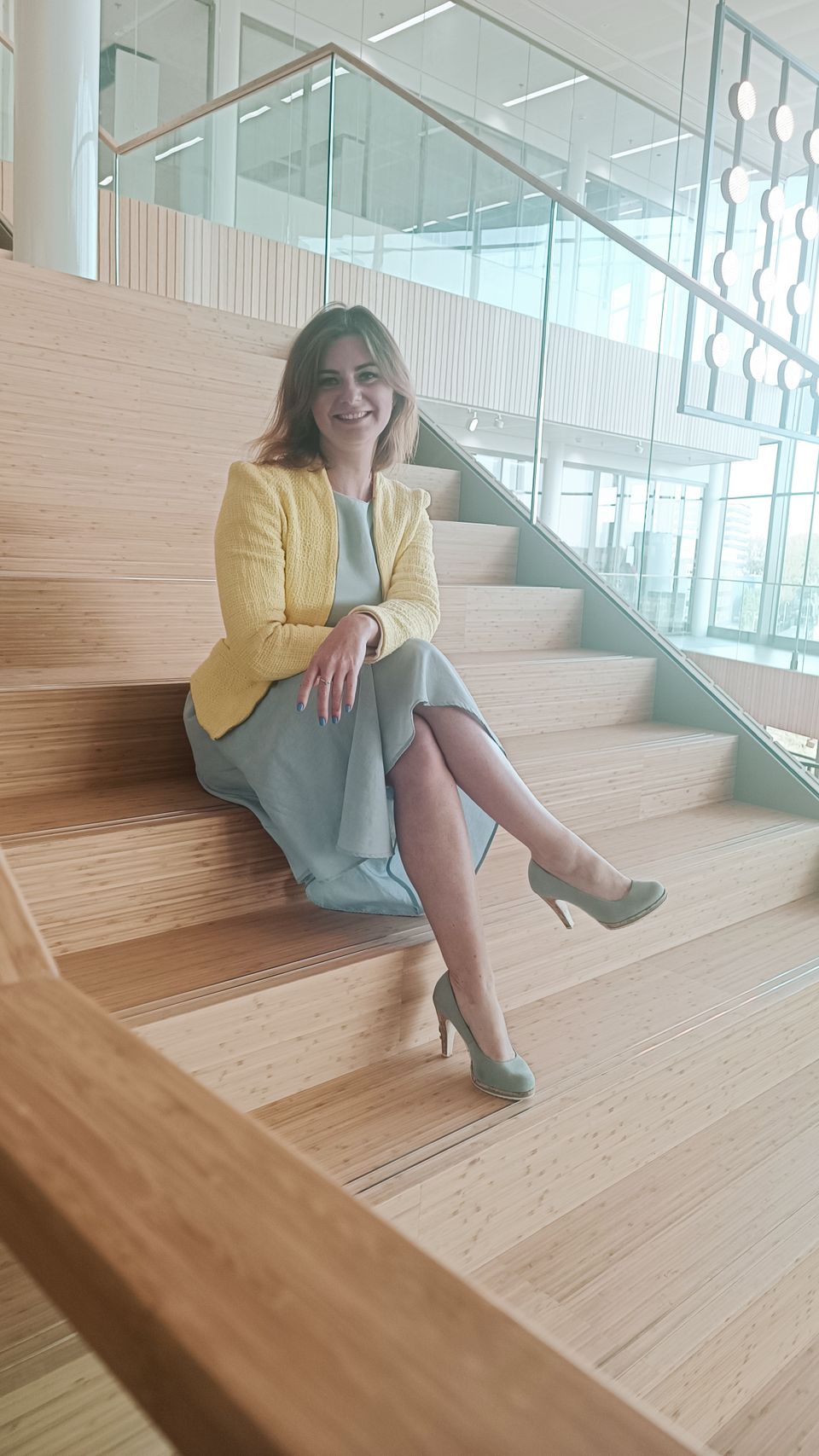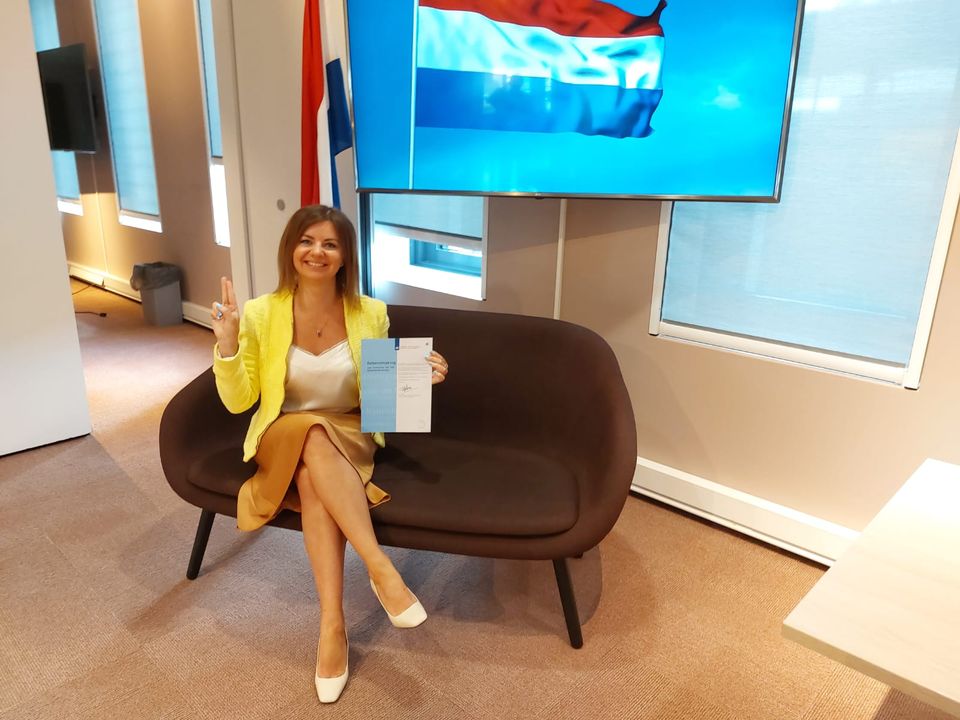Success Story: How Natalia Found her Dream Job in the Pharmaceutical Industry in Leiden
Originally from Moscow, Natalia Vtyurina moved to the Netherlands almost 12 years ago. Nowadays she lives in Leiden and works as Manager, Quality Assurance Shopfloor Operations at Bristol Myers Squibb. This American multinational pharmaceutical company has chosen the Leiden Bio Science Park (LBSP) for constructing their first Cell Therapy Facility (CTF) in Europe.
What brought you to the Netherlands?
After finishing my physics degree at Lomonosov Moscow State University in 2011, I sought international experience and wanted to apply my knowledge of physics to studying biological systems. In 2012 I joined Delft University of Technology as a PhD candidate at the newly established BioNanoScience department. I really liked the experience of being placed in a multidisciplinary and multicultural environment where physicists and biologists were exchanging knowledge to support each other’s research projects. I was exposed to different languages while carrying out high-level scientific research, travelling around the world, and growing personally and professionally. In 2016, I successfully defended my thesis on single molecule DNA-protein interactions, obtaining the title of Doctor.

Why did you choose Leiden as the next step in your career?
I knew that I would not pursue a career in academia, so throughout my academic path I focused on transitioning into industry. Located nearby to Delft, Leiden was an attractive city with many companies, universities, and a medical centre offering multiple networking opportunities. This helped me to connect with people working in the LBSP and explore job opportunities in the pharmaceutical industry. Still, it did not grant me a job in industry so easily, making me take yet another step in academia. In 2017 I joined Groningen Research Institute of Pharmacy as a postdoc, where I carried out a research project in the field of nanomedicines.
Paul Zantingh was the first talent acquisition manager to recognize my potential and efforts after my postdoc. In 2018 he gave me a chance to experience Good Manufacturing Practices (GMP) at ProPharma Group and then involved me in LBSP activities. Now we work closely together in the Human Capital Community, growing this amazing innovation district. I feel that living as a citizen of Leiden, as an active participant of the LBSP, and as a part of the business hub is a very inspiring journey.
When the Covid-19 pandemic hit, I learnt that a new brand production facility, Contract Development Manufacturing Organization HALIX, was going to launch the production of the AstraZeneca corona vaccine in the LBSP to supply the European market. I joined this demanding project as a Quality Assurance Officer in 2021, quickly growing towards the role of Senior Quality Assurance Officer in 2022. Delivering 80M doses of Covid-19 vaccine is by far the biggest and proudest achievement of my career.
What is your experience of living and working in the Leiden region as an international?
I have visited many countries, universities, congresses and once completed a 3-month research assignment at Oslo University in Norway. To be honest, I have never felt as comfortable as I do in Leiden, because it is populated with many internationals. You come across not only Dutch people but also people from all over the world. There is so much diversity of cultures and languages, which is an endless resource for exploration and development. This is the place to be to foster curiosity and tolerance, because the world is much bigger than one might think. I have never felt isolated here. The more people from different backgrounds surround me, the stronger I feel.

What were the initial challenges of coming to the Netherlands?
There were not many. I was invited for the interview, and everything was arranged by TU Delft. There were a few difficulties and delays with the arrangement of the documents, but it was solved quickly.
I think the welcoming process in a new country is an important part of a successful relocation story. If your onboarding goes smoothly, it really saves you a lot of energy as an expat. The Leiden International Centre focuses on making everything easy so that people coming to the LBSP can concentrate on their work and innovation. They do not have to worry about where to live, where to socialize, and how to travel from A to B. This removes routine distractions from the lives of internationals. If you cannot focus on your work because you have to take care of ‘stuff’ at home, innovation will not happen. The happier employees are, the more collaborative and friendly relationships we can create. That is the right environment where creativity and innovation are driven on their own.
It is quite a life change to move to a different country and build your social and professional life from scratch. Looking back now, I see that not everyone can integrate smoothly into a new culture. It is hard to accept that you live outside of your own country. Usually after two or three months the first wave of homesickness hits you, pushing you back to visit your country and loved ones. However, once you realize that you can travel back and forth, you calm down, gain your freedom back, and focus on your purpose again.
I am glad I moved internationally. It brings you to an absolutely different level of personal growth. Even if it requires some sacrifices, I know I am not the only one who is going through these struggles. There are many at the LBSP who share the same feelings, and this unites us.
What is your image of the Netherlands?
I imagine windmills, fields of tulips, herring and cows with milk and cheese. Also, the dunes and an extremely beautiful seaside. Of course, I also imagine high technology. The Netherlands is the second biggest exporter of agricultural products in the world, despite being around 350 times smaller than the United States. This is fascinating. I admire how Dutch people could establish such a successful economy, such a highly technological and advanced way of working, in such a small piece of land. You must be efficient and sustainable squeezing it all in without damaging the nature around you. I think that many countries that are much bigger do not appreciate the land they have. Here they do, they know this is their future.

What do you think about Dutch culture and the way that Dutch people live their lives?
I think it is difficult to differentiate Europeans from the Dutch. People say that the Dutch are cold, direct people. They live by their agendas and do not leave much space for spontaneity. I do not think this is always a bad thing. I believe it is the key to their efficiency. As an international you can adapt the best practices and apply them in your own life, using them to your own advantage. I have learnt a lot from them.
It might be hard to get into Dutch social circles because they grew up here having their own friends and families. Despite this, I have personally met Dutch people who were very open-hearted. My neighbor Onno de Meijer is 30 years older than me, but we have such a good connection that we seem like best friends. We did a trip to Curaçao together, where I picked up most of my Dutch language in practice. There, he taught me how to drive in the hills after I got my driving license on flat land.
If you want to integrate, I believe you really need to learn the language and stay open minded. It takes a lot of effort and it might even feel exhausting, but it is certainly worth it.
What advice would you give to those who are planning to move to the Netherlands?
The first thing I advise is to come here for a short vacation and imagine yourself in 1, 3, 5 years. When you see someone biking, wonder if you see yourself as that person. That is what I did. I came here for a few days, and only later moved permanently. After living in such a huge megapolis like Moscow, driving everywhere by car and losing time in traffic, I wanted to ride my bike instead. Despite the busy projects I constantly work on, I still feel like I am on vacation here.
Another very important thing to consider is whether your boss or supervisor is internationally oriented. Only then will they understand what you are going through. People often think that the topic of the project is crucial, but that is actually secondary. What is more important is the person in charge of the project. You will see your manager on a daily basis, hopefully building up a supportive relationship and ensuring mutual success.